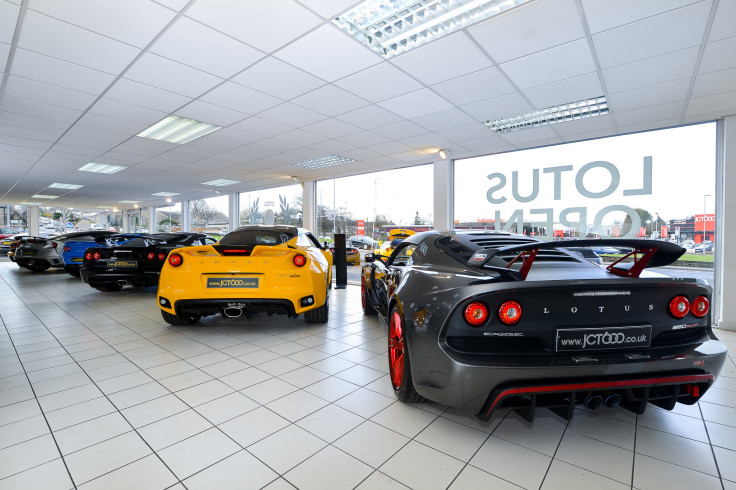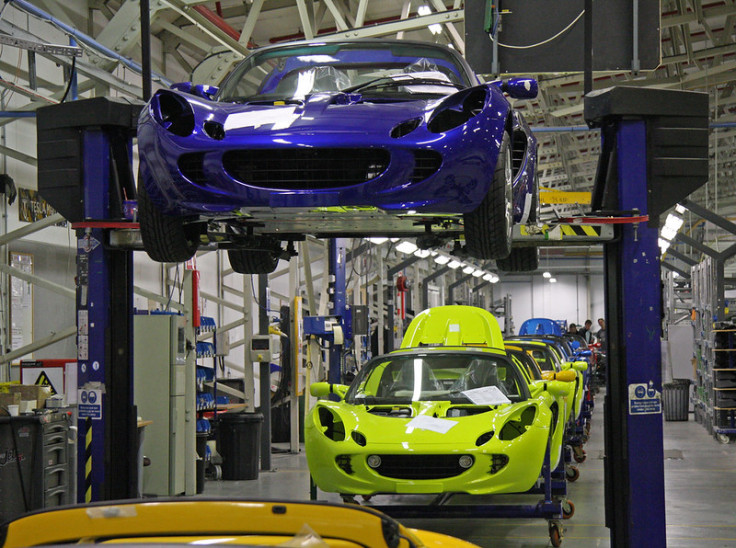Lotus Loses Nearly £200m in Six Months as Sports Car Sales Collapse 64% — Is Its UK Factory at Risk?
With sales down and 550 UK jobs at risk, Lotus faces mounting pressure to secure its future at Hethel

The future of Britain's legendary sports car manufacturer Lotus hangs precariously as the company reveals eye-watering losses of £195 million ($263 million) for the first half of 2025, sparking fresh concerns about its historic Norfolk factory and workforce.
The Geely-owned carmaker, celebrated for its lightweight racing heritage and engineering prowess, is facing its most challenging period in decades as traditional sports car sales plummet and global trade tensions take a deep bite.
Sales Collapse Compounds Financial Crisis
Lotus delivered just 2,813 vehicles globally in the first six months of 2025—a crushing 43% decline from 4,904 units in the same period last year. The company's flagship petrol-powered Emira sports car bore the brunt of this downturn, with deliveries collapsing 64% to only 891 units, down from 2,476 in the first half of 2024.
Even the company's newer electric offerings struggled. The Chinese-built Eletre SUV and Emeya saloon saw combined deliveries fall 21%, despite being positioned as Lotus's future. Total revenues tumbled 45% year-on-year to £162 million ($218 million), painting a stark picture of a brand in crisis.
The company blamed 'gradual destocking' and the 'phased commencement of upgraded model deliveries' for the poor performance, though industry observers point to deeper structural challenges facing the luxury sports car market.
Tariffs and Global Headwinds

Geopolitical tensions and trade barriers have compounded Lotus's financial woes. Earlier this year, US President Donald Trump imposed steep tariffs on UK-made vehicles, raising duties from 2.5% to 27.5%. Although a subsequent deal between London and Washington reduced the rate to 10% for the first 100,000 cars shipped annually, the damage had already been done.
The company was forced to temporarily halt production at its Hethel plant in Norfolk, where the Emira and the electric Evija hypercar are assembled. Lotus also faces even higher tariffs on its Chinese-made electric vehicles, further complicating its global sales strategy.
UK Jobs on the Line
In response to the financial strain, Lotus announced plans to cut up to 550 jobs in the UK, which represents nearly half of its domestic workforce in the UK. The move is part of a broader restructuring to create a 'flexible and agile business model' that can scale operations in line with market demand.
A spokesperson for Lotus stated: 'We believe this is necessary to secure a sustainable future for the company in today's rapidly evolving automotive environment, which is seeing uncertainty with rapid changes in global policies, including tariffs.'
Despite the layoffs, the company insists it remains committed to its UK roots. 'The brand remains fully committed to the UK, and Norfolk will remain the home of the Lotus' sports car, motorsports and engineering consulting operations,' the spokesperson added.
Will Hethel Survive the Storm?

The Hethel factory, housed in converted Second World War hangars, represents nearly 60 years of British automotive innovation. But with production temporarily paused and workforce decimated, questions mount about its long-term viability.
Industry analysts suggest that Lotus may increasingly pivot towards its state-of-the-art facility in Wuhan, China, where the Eletre and Emeya are manufactured. Notably, China was the sole bright spot in Lotus's recent results, with deliveries there increasing by 13% even as other markets declined. Nearly half of all Lotus deliveries in the first half of 2025 went to Chinese customers.
North American deliveries, in particular, suffered, plunging from 1,278 units to just 430 in the comparable period. European markets also contracted sharply, though they remain Lotus's largest regional market.
Legacy Brand at a Crossroads
Lotus's predicament mirrors broader challenges facing traditional sports car manufacturers in the electric age. The Emira was marketed as Lotus's final internal combustion engine model; yet, it remains the company's strongest seller, despite declining volumes. Meanwhile, the electric vehicles meant to secure Lotus's future have failed to capture consumer imagination or deliver promised sales volumes.
The numbers tell a brutal story. Lotus originally projected 47,000 deliveries for 2024 when it went public; it managed just 12,065. For 2025, the company has dramatically scaled back its expectations to around 14,500 units—still potentially optimistic, given the first-half performance.
As Lotus approaches its 75th anniversary, the company that Colin Chapman built on principles of lightweight engineering excellence faces its gravest test. Whether Hethel remains the beating heart of Lotus or becomes another casualty of automotive globalisation will likely be determined in the coming months.
© Copyright IBTimes 2025. All rights reserved.




















